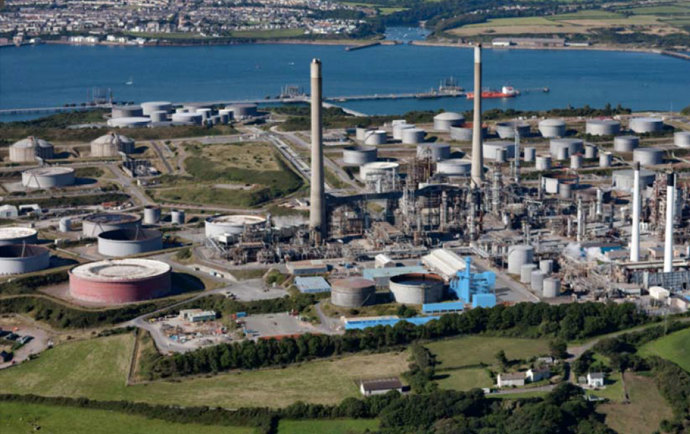
Major Development & Developments of National Significance Consultation Requirements in Wales (different but not so different)
Cardiff office
01 Feb 2019
The Lichfields Cardiff office has guided some of Wales’ biggest development schemes through the consultation and engagement requirements of major planning applications and Developments of National Significance (DNSs)
[i].
This Q&A explores the differences and similarities between the two determination regimes.
What are DNSs and Major Developments in Wales?
-
‘Major development’ includes residential development of 10 or more dwellings, or with a site area of at least 0.5 ha. For non-residential development it comprises sites with an area of at least 1 ha, those creating at least 1,000 sq m of floorspace, or waste or mineral development, unless it is classified as a DNS. Applications for major development are determined by the relevant local planning authority (unless they are subject to an appeal process).
-
DNS development includes projects of a specified scale relating to land uses including airports, railways and electricity-generating stations (among others). A full list of DNS project and thresholds is set out in the
‘Specified Criteria’ Regulations[i]. Applications for DNS development are determined by the Welsh Ministers through the Planning Inspectorate (PINS) Wales, with the local authority being a statutory consultee.
-
A DNS development does not have to be ‘major’ to be of ‘national significance’; it is solely dependent on whether the scale of development exceeds the thresholds set out in the Regulations.

Client image: Valero/ERM
What are the key differences between consultation and engagement for DNS and major development projects?
Both are required to undertake a minimum level of consultation prior to submission however there are key differences in the length and nature of that consultation.
DNS applicants are required to undertake pre-application consultation for 42 days. For major developments this is 28 days.
DNS pre-application consultation must include the publication of a newspaper notice, as well as consultation with other ‘relevant persons’. The exact nature of consultation and publicity will vary depending on the proposal and it is expected that most DNS projects will exceed the minimum requirements.
Post-submission publicity for DNS applications is undertaken by PINS Wales rather than the local planning authority. This includes a further newspaper notice, serving notice on adjoining owners or occupiers and a website. For major development applications a local authority would only need to publish a newspaper notice if the development is an EIA project, if it is not in accordance with planning policy or if it would affect a public right of way.
DNS applications are determined by the Welsh Ministers though the relevant local authority is required to submit a Local Impact Report. Community Councils and other interested local planning authorities may submit a Voluntary Local Impact Report. These are similar in nature to the Officer’s Report associated with major planning applications.
What are the consultation challenges for DNS projects and major developments and how can these be overcome?
Many of the challenges are similar between the two determination routes, albeit they are often amplified for larger scale developments. Below we look at some of the key challenges and how they may be overcome:
-
Ensuring Compliance: Understanding of the relevant legislative requirements is vital. This is applicable for DNS and major developments, but the complexity of DNS projects means this is particularly important and, if not undertaken correctly, could lead to considerable problems at the determination stage. Make sure that you have a project team that has a proven track record in the relevant consultation process.
-
Timing & Frequency: Whilst DNS and major development consultations have mandatory elements, going above and beyond the statutory requirements can pay dividends. Ironing out as many issues as possible at the pre-application stage will allow the determination process to focus on the key issues; providing certainty to all and speeding up the decision-making process. Early and regular engagement can therefore have big benefits, but it is important that the engagement is meaningful.
-
Misinformation & Proportionality: Due to the scale and complexity of major and DNS applications the risk of misinformation, or small issues becoming a major problem is a risk. The use of social media has increased the speed at which this can happen. Lichfields'
Smarter Engagement Five Point Plan highlights the need for a consultation strategy to be shaped by an understanding of the various stakeholder groups relevant to the project. It is important that the team responds to potential issues at the earliest opportunity. Ignoring misinformation could compromise the project in the long run.
-
Managing Volume: the scale of DNS and major development projects makes managing the volume of responses, reviewing and handling them in accordance with the General Data Protection Regulation (GDPR) a significant task in itself. It is vital to have robust and efficient handling procedures in place.
-
Value of face-to face contact: Neither regime makes it mandatory to meet consultees face-to-face however faceless consultation can fuel misinformation and misunderstanding (see above). Invariably there is a solution to a problem through face-to-face contact and explaining the proposed development.
What tips would you specifically give to applicants for DNS and/or major development projects?
-
Consultation is key! Think about consultation and engagement early in the process and allow sufficient time in the programme. Specifically for DNS projects, be mindful that the application must be submitted within 1 year of PINS Wales’ acceptance date of the DNS.
-
Understand the relevant Regulations and what is required at each stage to avoid delay and the potential for future legal challenge.
-
Make sure to use the correct consultation and notice forms. For DNS projects these are provided as Schedules within the DNS Procedure Order (NB. PINS Wales can provide these forms in English and Welsh on request).
-
Only undertake mandatory pre-application consultation when you are ready. There is scope to vary the proposed development once the DNS or major development consultation has finished, however if substantial scheme changes are made the process may need to start again.
-
Remember to include any secondary consents in the DNS application scheme/consultation. This includes Listed Building Consent, Conservation Area Consent and Hazardous Substances Consent, among others.
-
Ensure that the consultation is accessible to all – including English and Welsh speakers (N.B. Lichfields can provide in-house translation services if required).
-
Think of the mandatory pre-application consultation website as a tool for disseminating information as well as a consultation portal. This helps to keep everyone updated and encourages communities to become involved in the project.
Image credit: Foster + Partners
[1] Developments of National Significance, Welsh Government[1] The Developments of National Significance (Specified Criteria and Prescribed Secondary Consents) (Wales) Regulations 2016




